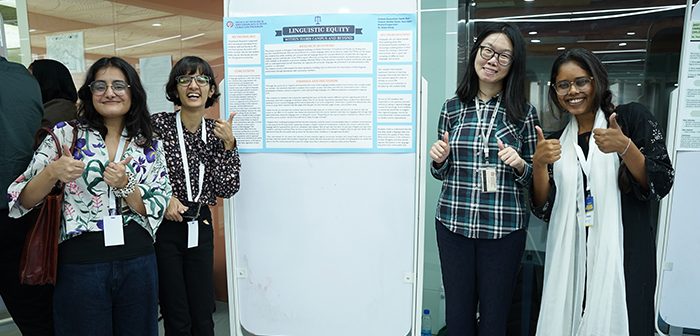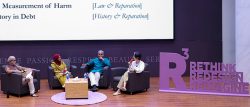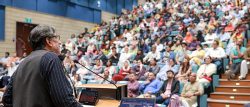On 12th September 2024, Habib University held the Summer Tehqiq Research Showcase, encouraging students to engage in undergraduate research projects through faculty mentorship and independent research opportunities. This flagship program, under the Graduate School Curation Program (GSCP), provides students with a unique chance to explore diverse academic research across multiple disciplines.
With over 50 projects displayed this year, the STRP has become a powerful platform that allows students to address real-world issues while gaining valuable research experience for future endeavors.
A Glimpse into the STRP 2024 Showcase
A key component of the Graduate School Curation Program (GSCP), the Summer Tehqiq Research Program (STRP) is organized in two phases: STRP-1 and STRP-2. In STRP-1, students participate in ten-week, faculty-led research projects, paired with Principal Investigators based on their interests. For STRP-2, students develop independent research projects under faculty supervision, having a greater freedom to pursue their unique research interests.
Faculty-Led Research Projects in STRP-1
The level of research conducted during the STRPs show Habib University’s commitment to interdisciplinary study and addressing local and contextual issues.
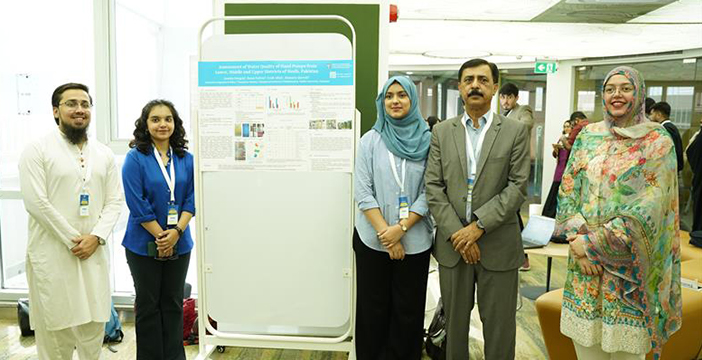
One innovative project, “Autonomizing Industrial Tow Trucks: A Mobile Robotics Solution for Toyota IMC,” was led by Dr. Munzir Zafar, Assistant Professor ECE and Faculty Director of Academics GSCP. It involved undergraduate researchers Suleiman Qureshi, Ailiya Fatima, and Shaheer Abbas (EE graduates), and Sadiqah Mushtaq and Ehzem Shaikh (CE graduates), who converted manual tow trucks into autonomous vehicles for Toyota Indus Motor Company (IMC)’s manufacturing plant. This effort advanced industrial automation with robotics and sensor technology.
“Quantifying Pakistan’s Judicial System,” was another critical research project led by Dr. Sahaab Bader Sheikh, Assistant Professor and Program Director SDP. Undergraduate researchers Aamna Ahmed and Fatima Sami (both SDP) investigated the intricacies of Pakistan’s justice system by focusing on 33,423 cases from the Sindh High Court from the years 2011 and 2012. The study employed a mixed-methods approach, examining factors contributing to delays and inefficiencies in the judicial process.
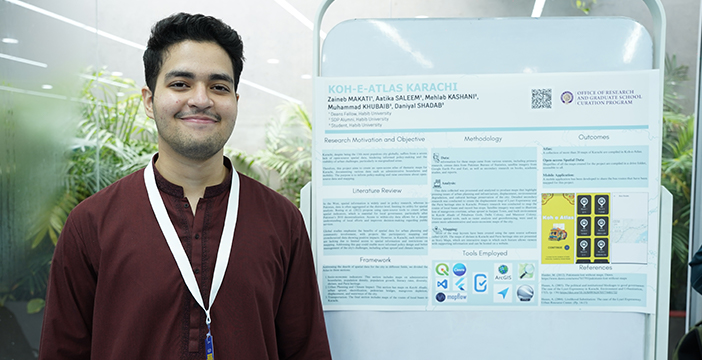
On the Urban Studies front, “Koh-e-Atlas Karachi,” supervised by Zaineb Makati, a Dean’s Fellow and Lecturer at Habib University, addressed the need for accurate, open-source spatial data in Karachi. The project, involving undergraduate researchers Mehlab Kashani (SDP), Khubaib Mukaddam and Daniyal Shadab (CS graduates), as well as research collaborators Aatika Saleem and Saniyah Salman (SDP graduates), mapped key urban features such as population density and cultural heritage sites, helping in city planning and highlighting issues like climate change and cultural preservation.
The research project on “Bridging Philosophical Traditions: A Comparative Study of Religious Experiences in Suhrawardi and James,” was led by Hamza bin Sajjad, currently a Dean’s Fellow and Lecturer at Habib University, holding a masters degree in Theological Studies from Harvard University. In this study, researchers Neha Allar (CND) and Maria Adnan (CS) examined the philosophical and psychological perspectives on divine illumination and intuition in the works of Suhrawardi and William James, connecting Eastern and Western views on spirituality and psychology.
Student-Designed Research Projects in STRP-2
In STRP-2, students took the lead on their own research projects, pushing the boundaries of academic inquiry.
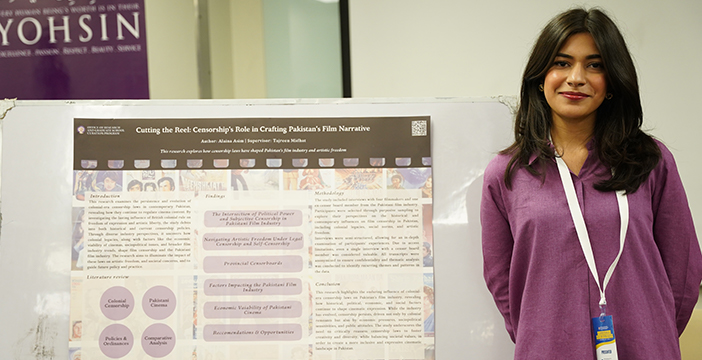
A research project “Cutting the Reel: Censorship’s Role in Crafting Pakistan’s Film Narrative” explored how colonial-era censorship laws still shape Pakistan’s film industry today. The research was led by Principal Investigator Alaina Asim (SDP) and supervised by Tajreen Midhat, SDP Lecturer at Habib University, examining the limitations on artistic expression imposed by censorship and called for reform to foster creativity and diversity in Pakistani cinema.
Another fascinating project, “Challenging the Myth of the Secular: The Role of Ontotheology and Biopolitics in the Secular State,” examined secularism through the philosophical lenses of Heidegger, Foucault, and Agamben. Led by Principal Investigator Soha Sajjad (CH) and supervised by Sumbul Usman Yusuf (Dean’s Fellow, CH), the research opened new discussions on how secular states exercise biopolitical control under the guise of neutrality, challenging conventional ideas about governance.
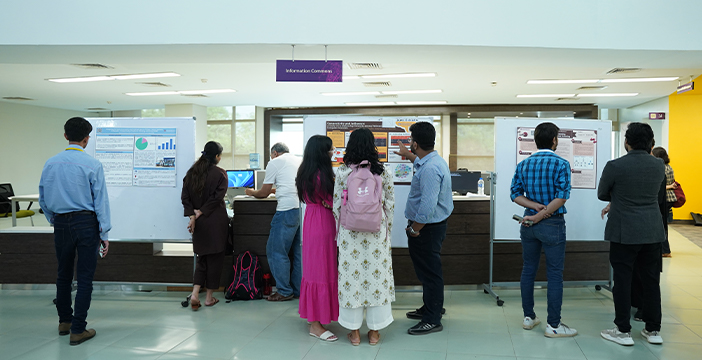
The study titled “AI-Driven Job Selection: Revolutionizing Talent Acquisition with Machine Learning-Powered Resume Screening and Candidate Profiling,” was led by Areesha Amir (CS) and supervised by Dr. Syeda Saleha Raza, Associate Professor and Program Director CS. It aimed to enhance recruitment using advanced machine learning techniques. The study addresses challenges such as high candidate volumes, inconsistent resume formats, and biased screening.
Another study explored the important subject of “Women Farmers’ Awareness, Challenges, and Adaptation Needs to Climate Change,” led by Asiya Azad (SDP) and supervised by Uswa Ali Memon (Dean’s Fellow, SDP). The research involved studying the climate challenges faced by women farmers in the remote Kel village in Neelum Valley, highlighting disparities in climate awareness and the need for gender-sensitive policies to help women better adapt to climate change.
A Culture of Research Excellence at Habib University
The diversity of research showcased through STRP, housed under GSCP, shows our commitment to cultivating rich undergraduate research at the best university in Pakistan.
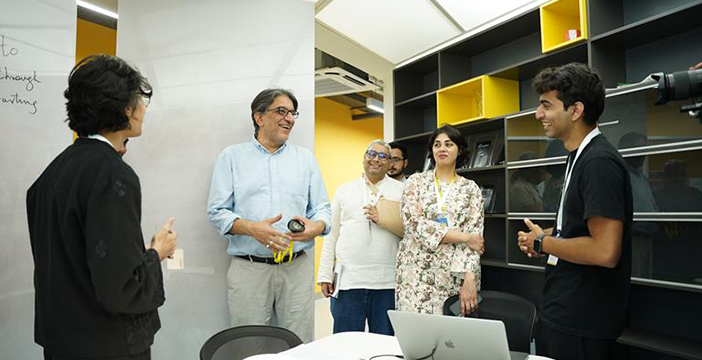
Dr. Shah Jamal Alam, Interim Associate Dean of Undergraduate Education & Accreditation and Associate Professor in the Computer Science program, reflected on Habib’s growing emphasis on research excellence, “A lot of good interdisciplinary research and professional scholarship has been produced this year; I’m very impressed with the work done. The students and faculty have invested a lot in this, and the culture of undergraduate research at Habib University is becoming more robust.”
Shoaib Siddiqui, Dean of the Generations Scholars Program, emphasized the significance of these research projects, stating, “It’s impressive how these research concepts are grounded in the Pakistani context, addressing critical issues like our justice system, ecology, and water management. This reflects Habib University’s dedication to tackling local challenges and developing practical solutions.” This aligns with Habib University’s reparative mission, enabling students to critically engage with and address the complexities of Pakistan’s postcolonial landscape.
Imtiaz Ahmed, father of Aamna Ahmed (SDP 2024) praised the institution’s impact on students saying, “The effort and guidance of the teachers at Habib University are commendable; the confidence and presentation skills of the students show the valuable education they receive. I’m really proud of my daughter and never imagined the level of research being done here.” His words highlight Habib University’s student-centered approach, guiding them to become critical thinkers and engaged citizens.
Other attendees included Rizwan Sheikh, General Manager Indus Motor Company Ltd, Aaliya Abidi, Head of Education Technologies at Generations School, and Syed Husain Momin Zaidi, Manager University Placements at Nixor College.
Advancing Undergraduate Research
The STRP Showcase 2024 shows the robust research culture at Habib University that encourages interdisciplinary collaboration and critical inquiry. It enables young researchers to engage in meaningful projects that address real-world challenges such as climate change, judicial reform, and social equity. These research projects engage students in academic discussions and address important community issues. This commitment to practical solutions ensures that research at Habib University resonates beyond the classroom, driving positive change in local communities and preparing students to become active, informed citizens.
…

